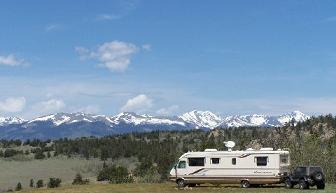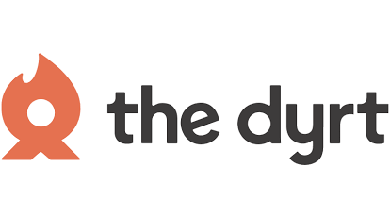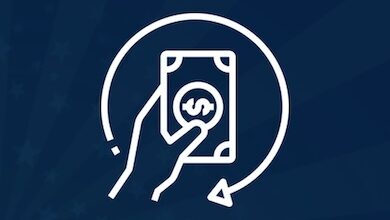Essay: Discovering Back Roads of America in an RV

The following is an article from Frank Berry, Bloomberg opinion columnist.
This essay has been adapted from Frank Barry’s forthcoming book, Back Roads and Better Angels: A Journey into the Heart of American Democracy, coming June 4.
No, we’re not going to Yellowstone.
That was the reply Laurel and I gave to the most frequent first question friends and family asked when they heard of our plan — a year into marriage and six months into a pandemic lockdown — to drive a motorhome across the country. They always seemed taken aback by our answer, as though we were traveling Egypt but passing on the pyramids, or crossing China without walking the Great Wall, or touring Ireland without having a pint at a pub. Who would dare? Snubbing Old Faithful on a road trip west — and through Wyoming, no less?
National parks occupy a sacred place in the American heart, and road trips have an unrivaled hold on the American imagination. The liberating pull of our open roads inspires romantic visions of the nation in its most idyllic form. When parents take the family wagon for a cross-country vacation, or kids cannonball like Kerouac and Cassady across the land, or retirees take the trip they’ve long dreamed about, national parks shape the itinerary and interstate highways speed the way. I had another kind of journey in mind.
The idea of driving the old Lincoln Highway — the nation’s first transcontinental route, running from New York City to San Francisco — came to me in January 2016, when America seemed to be coming apart in ways I had never seen, as Donald Trump’s presidential candidacy enthralled conservatives, enraged liberals, and sent both into delirium. In the months and years that followed, resentments deepened and passions burned hotter, each side increasingly unable to abide the other, with references to the Civil War growing more frequent.
As the pandemic stretched into the summer of 2020, I realized that it was now or never. To avoid the need for hotels, I began researching RVs, which I knew almost nothing about. I’d ridden in one only once, at the end of senior year in college. About ten of us rented a motorhome to drive to the Kentucky Derby, and we broke down about halfway. The dealer agreed to deliver a replacement vehicle in a few hours, which turned into half the night. We didn’t mind, since someone had the foresight to bring along a keg of beer. We didn’t sleep and pulled into Churchill Downs at daybreak, not needing mint juleps but having them anyway and taking in the bacchanalia of the infield. This, it turns out, was not an accurate representation of RV life, except for the part about waiting on repairs.
On RVTrader.com, Laurel and I found the largest vehicle we wanted to drive and the smallest one we wanted to live in: a 25-foot 2017 Winnebago with thirty thousand miles. Our plan is to leave New York City on Sept. 11 with the aim of reaching San Francisco by Election Day. Along the way, we’ll follow the same North Star that guided the nation through our darkest hour: Abraham Lincoln, whose martyrdom has transcended our political parties.
In his first inaugural address, Lincoln declared that “the mystic chords of memory … will yet swell the chorus of the Union, when again touched, as surely they will be, by the better angels of our nature.” We’re going looking for those better angels and listening for those mystic chords in the hope of beginning to swell a chorus that has been drowned out by an earsplitting cacophony of anger and rage. When the two major parties do not respect each other, when each views the other as an enemy that threatens the existence of the country, when each stridently condemns the other in moral terms and judges the other unfit for power, the prospect of a major breakdown in democratic governance — and the eruption of violence — should not be taken lightly.
Staving off such a nightmare begins, I believe, with considering both the tensions that have pulled the country apart since its inception and the elastic bands that have held us together. By doing so, it is my hope that we can better see the value of what I’d call patriotic pragmatism. A patriotic pragmatist is not so righteous as to reject compromise, not so modern as to damn all historical figures, not so defensive as to whitewash terrible wrongs, not so reckless as to tolerate political violence, not so feverish as to conflate party with deity and not so blind as to fail to see through another’s eyes.
Patriotic pragmatists, guided by the three fundamental values of the Declaration of Independence and Constitution — freedom, equality and democracy — may well determine whether the American people will, in Lincoln’s phrase, “nobly save, or meanly lose, the last best hope of earth.”
So I’d like to invite you along with Laurel and me on this cross-country journey, with the hope that — by listening to people we meet along the way, digging into the landscape to uncover what it conceals, and remembering some of the domestic battles Americans have fought — we might view the country’s challenges a little less rigidly, our fellow citizens a little more empathetically, our common history a little more clearly, our national resilience a little more appreciatively, our shared inheritance a little more reverently and our civic responsibilities a little more soberly.
I left Manhattan at dawn in a rental car and met the Winnebago seller in North Carolina in the late afternoon. After some paperwork and an orientation that I barely understood and quickly forgot, I got into the driver’s seat and wondered if I’d bitten off too much. I intended to stop for the night in Virginia, but once moving I dreaded the prospect of hitting morning traffic around Washington and Baltimore, so I decided to press on.
After picking up Bojangles chicken and biscuits and a large Dr. Pepper, I ran on nervous energy, gripping tight the wheel, testing the stereo’s maximum volume and driving through the night. What I wouldn’t have given to be lounging in the back with friends and a keg.
Finally, after 30 straight hours on the road, I arrived at our family house in upstate New York and kissed the ground — triumphant, exhausted and apologetic, as Laurel rightly asked how I could do something so stupid. Her exasperation quickly gave way to excitement as she stepped inside the Winnebago, when it finally hit her: It’s really happening.
We were RV people now. And the country was calling.
Read the full article from Barry in Bloomberg here.


